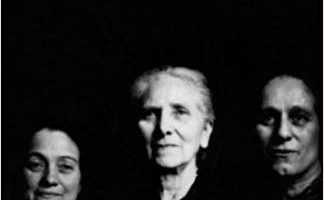The Right Women: A Journey Through Conservative America
The Right Women: A Journey Through Conservative America
by Elinor Burkett
Scribner, $23
Just one generation has passed since the modern feminist movement joined forces with other American movements in protesting the status quo, and the country has veered strikingly to the right. The political activists of yore, demanding that the government feed the cities and starve the war machines are but a quaint memory. In their place has stepped the politically powerful Christian right, with what it coyly calls its “pro-family” values—which organizations like NOW read as code for anti-homosexual, anti-choice and ultimately anti-woman.
So how is the feminist movement faring now, at a time when “femi-nazi,” courtesy of Rush Limbaugh, is part of the American lexicon and the cover of Time Magazine asks, “Is Feminism Dead?”?
Not to worry, at least according to journalist Elinor Burkett, a self-described pushy New York Jewish feminist. In her book The Right Women: A Journey Through Conservative America, Burkett argues that feminism, despite the strength of movements like the Christian Coalition and Focus on the Family, is alive and well. It “has grown wild across the land,” she says, and has taken root—albeit invisibly—deep in psyches of even the most conservative of American women.
During a two-year trek across America, Burkett met with a colorful range of right-wing women. She found that even though they reject feminism per se—and often vociferously—as an exclusively liberal ideology, they take for granted many of the gains that the women’s movement achieved. And while Burkett is irked by the lack of gratitude, she is still gratified to find that feminism, like it or not, is now part and parcel of American values.
In her snappy prose, Burkett introduces us to some fascinating characters. There is Nona Brazier, a black conservative who opposes affirmative action and ran for governor of Washington; Kay Shiel of suburban Kansas City, a housewife who heads a militia group (“I resent the assumption that militia members are all racist pigs.”); Elizabeth Holscher, a fundamentalist Christian in upstate New York who home-schools her five children and tells Burkett that she feels bad for feminists. “They’re missing out on something special God has for them,” she says.
The ’94 Republican sweep in Congress included seven Republican women, the most ever elected in one year. These feisty women pols, who seemed to embody feminist ideals, made a vociferous point of separating themselves from the movement. Burkett quotes Representative Barbara Cubin of Wyoming, who after the election rejoiced: “There’s not a femi-nazi among us!”
Oddly, Burkett does not take offense. Instead, she criticizes her beloved feminism, faulting its adherents for their attacks on housewives and prolifers, i.e. women who disagree with traditional feminist ideology. While some may feel that this critique lets conservative women too easily off the hook, Burkett’s willingness to ponder all sides of this debate is what makes this book a most provocative and valuable read.
Alice Sparberg Alexiou, who lives on Long Island, writes frequently about the Christian Right.


